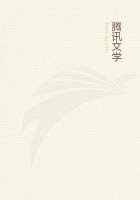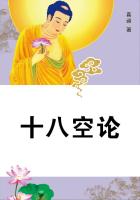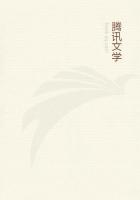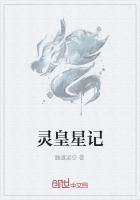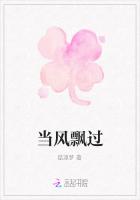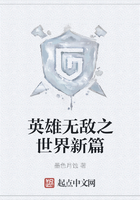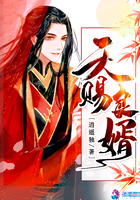Remember that the essential masculine attitude is one of opposition, of combat; his desire is obtained by first overcoming a competitor; and then see how this dominant masculinity stands out where it has no possible use or benefit--in the field of education. All along the line, man, long master of a subject ***, fought every step of woman toward mental equality. Nevertheless, since modern man has become human enough to be just, he has at last let her have a share in the advantages of education; and she has proven her full power to appreciate and use these advantages.
Then to-day rises a new cry against "women in education." Here is Mr. Barrett Wendell, of Harvard, solemnly claiming that teaching women weakens the intellect of the teacher, and every now and then bursts out a frantic sputter of alarm over the "feminization" of our schools. It is true that the majority of teachers are now women. It is true that they do have an influence on growing children. It would even seem to be true that that is largely what women are for.
But the male assumes his influence to be normal, human, and the female influence as wholly a matter of ***; therefore, where women teach boys, the boys become "effeminate"--a grievous fall. When men teach girls, do the girls become -----? Here again we lack the analogue. Never has it occurred to the androcentric mind to conceive of such a thing as being too masculine. There is no such word! It is odd to notice that which ever way the woman is placed, she is supposed to exert this degrading influence; if the teacher, she effeminizes her pupils; if the pupil, she effeminizes her teachers.
Now let us shake ourselves free, if only for a moment, from the androcentric habit of mind.
As a matter of ***, the female is the more important. Her share of the processes which *** distinction serves is by far the greater. To be feminine--if one were nothing else, is a far more extensive and dignified office than to be masculine--and nothing else.
But as a matter of humanity the male of our species is at present far ahead of the female. By this superior humanness, his knowledge, his skill, his experience, his organization and specialization, he makes and manages the world. All this is human, not male. All this is as open to the woman as the man by nature, but has been denied her during our androcentric culture.
But even if, in a purely human process, such as education, she does bring her special feminine characteristics to bear, what are they, and what are the results?
We can see the masculine influence everywhere still dominant and superior. There is the first spur, Desire, the base of the reward system, the incentive of self-interest, the attitude which says, "Why should I make an effort unless it will give me pleasure?" with its concomitant laziness, unwillingness to work without payment. There is the second spur, Combat, the competitive system, which sets one against another, and finds pleasure not in learning, not exercising the mind, but in getting ahead of one's fellows. Under these two wholly masculine influences we have made the educational process a joy to the few who successfully attain, and a weary effort, with failure and contumely attached, to all the others. This may be a good method in ***-competition, but is wholly out of place and mischievous in education. Its prevalence shows the injurious masculization of this noble social process.
What might we look for in a distinctly feminine influence? What are these much-dreaded feminine characteristics?
The maternal ones, of course. The *** instincts of the male are of a preliminary nature, leading merely to the union preceding parenthood.
The *** instincts of the female cover a far larger field, spending themselves most fully in the lasting love, the ceaseless service, the ingenuity and courage of efficient motherhood. To feminize education would be to make it more motherly. The mother does not rear her children by a system of prizes to be longed for and pursued; nor does she set them to compete with one another, giving to the conquering child what he needs, and to the vanquished, blame and deprivation. That would be "unfeminine."
Motherhood does all it knows to give to each child what is most needed, to teach all to their fullest capacity, to affectionately and efficiently develop the whole of them.
But this is not what is meant by those who fear so much the influence of women. Accustomed to a wholly male standard of living, to masculine ideals, virtues, methods and conditions, they say--and say with some justice--that feminine methods and ideals would be destructive to what they call "manliness." For instance, education to-day is closely interwoven with games and sports, all of an excessively masculine nature. "The education of a boy is carried on largely on the playground!" say the objectors to women teachers. Women cannot join them there; therefore, they cannot educate them.
What games are these in which women cannot join? There are forms of fighting, of course, violent and fierce, modern modifications of the instinct of ***-combat. It is quite true that women are not adapted, or inclined, to baseball or football or any violent game. They are perfectly competent to take part in all normal athletic development, the human range of agility and skill is open to them, as everyone knows who has been to the circus; but they are not built for physical combat; nor do they find ceaseless pleasure in throwing, hitting or kicking things.
But is it true that these strenuous games have the educational value attributed to them? It seems like blasphemy to question it. The whole range of male teachers, male pupils, male critics and spectators, are loud in their admiration for the "manliness" developed by the craft, courage, co-ordinative power and general "sportsmanship" developed by the game of football, for instance; that a few young men are killed and many maimed, is nothing in comparison to these advantages.

